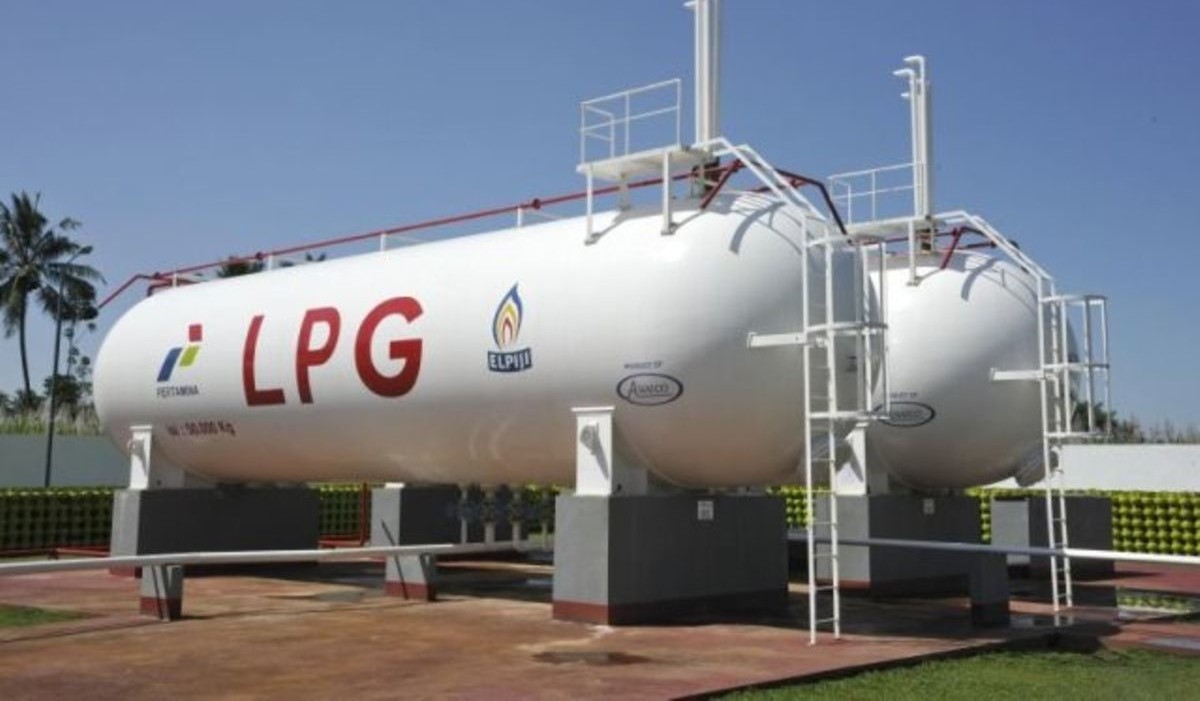Tanzania targets LPG bulk procurement to cut costs, boost supply

What you need to know:
- The Petroleum Bulk Procurement Agency said efforts are already underway to expand and modernise storage facilities
Dar es Salaam. The government has embarked on major infrastructure upgrades at key seaports as it moves to bring liquefied petroleum gas (LPG) under the Bulk Procurement System (BPS), in a strategic move aimed at improving fuel security and lowering energy costs.
The Petroleum Bulk Procurement Agency (PBPA) said in Dar es Salaam on Thursday that efforts are already underway to expand and modernise storage facilities, while plans to accurately assess national LPG demand are also in progress.
“LPG is an important energy source, but there are specific challenges that need to be addressed before it can be incorporated into the BPS,” said PBPA Executive Director Erasto Simon. “We need the right infrastructure—larger docking spaces for ships, extended pipelines and enhanced storage capacity. Once these are in place, we will move ahead.”
The BPS, currently used for petrol, diesel, kerosene and jet fuel, has been credited with improving both supply and price stability. Authorities now believe extending it to cover LPG could yield similar benefits for households and businesses.
The LPG business is still growing steadily in Tanzania, aided by the government’s push to ensure that at least 80 percent of Tanzanian households shift to the use of clean cooking energy by the year 2034.
Official data from the Energy and Water Utilities Regulatory Authority (Ewura) show that in the financial year 2022/23, LPG imports rose by 16 percent to 293,167 tonnes compared to 252,022 tonnes imported in 2021/22.
Mr Simon said that the government, through PBPA and in collaboration with the Ministry of Energy, Ministry of Finance, the Bank of Tanzania and the Ewura, is undertaking structural reforms to strengthen the current system.
Among the reforms are revised oil import contracts that allow payments in a wider range of foreign currencies, reducing pressure on the US dollar.
“We’ve enabled commercial banks to support access to foreign currency more efficiently and allowed importation from countries without payment restrictions—such as Saudi Arabia, Oman, India, Dubai and Singapore. But ultimately, all payments still have to be made in US dollars, because that is the dominant currency in global oil trade,” Mr SImon said.
He noted that the current BPS reforms have already translated into significant savings. He said the government has saved over Sh225.6 billion in the past four years—equivalent to Sh56.4 billion annually—thanks to the installation of high-tech monitoring systems such as flowmeters and SCADA technology. These systems help detect discrepancies and reduce fuel losses at oil storage depots.
“This is a direct result of enhanced monitoring and accountability in the fuel reception process,” he said.
He added that since the reforms began in 2021, the number of registered oil importers has more than doubled, from 33 to 73 by 2025, marking a 121 percent increase. During the same period, 24 suppliers were prequalified to participate in BPS.
Fuel import volumes have also shown steady growth. From 5.8 million tonnes in 2021, imports rose to 6.4 million tonnes in 2024, a 9.6 percent increase and are projected to hit 7.1 million tonnes by the end of 2025, which would reflect an 11.4 percent year-on-year growth.
Meanwhile, the number of procurement tenders rose from 109 in 2021 to 118 in 2025, while a total of 589 contracts were executed over the four-year span.
Mr Simon stressed that fuel security remains a top priority for Tanzania, noting that adequate fuel reserves are crucial for economic resilience.
“As a country, we must ensure that we have no less than 15 days’ worth of fuel in storage at any given time,” he said, adding that daily consumption, including transit volumes, now exceeds 7 million litres.
To address growing demand and improve reliability, the government is expanding both import and storage infrastructure. Tanzania is also positioning its ports as strategic fuel entry points for landlocked neighbouring countries, such as Zambia, Burundi, Rwanda and Uganda.
“Our aim is to serve the region more efficiently. If we succeed, we’ll not only enhance regional supply chains but also lower fuel prices due to improved economies of scale,” Mr Simon said.
The move to include LPG in the BPS comes at a time when the government is also promoting wider adoption of cleaner energy alternatives to charcoal and firewood—especially in urban and peri-urban areas.
If the infrastructure and policy reforms stay on course, LPG users in Tanzania could soon benefit from improved availability and more stable pricing, aligning with the country’s broader goals of energy transition and economic competitiveness.





